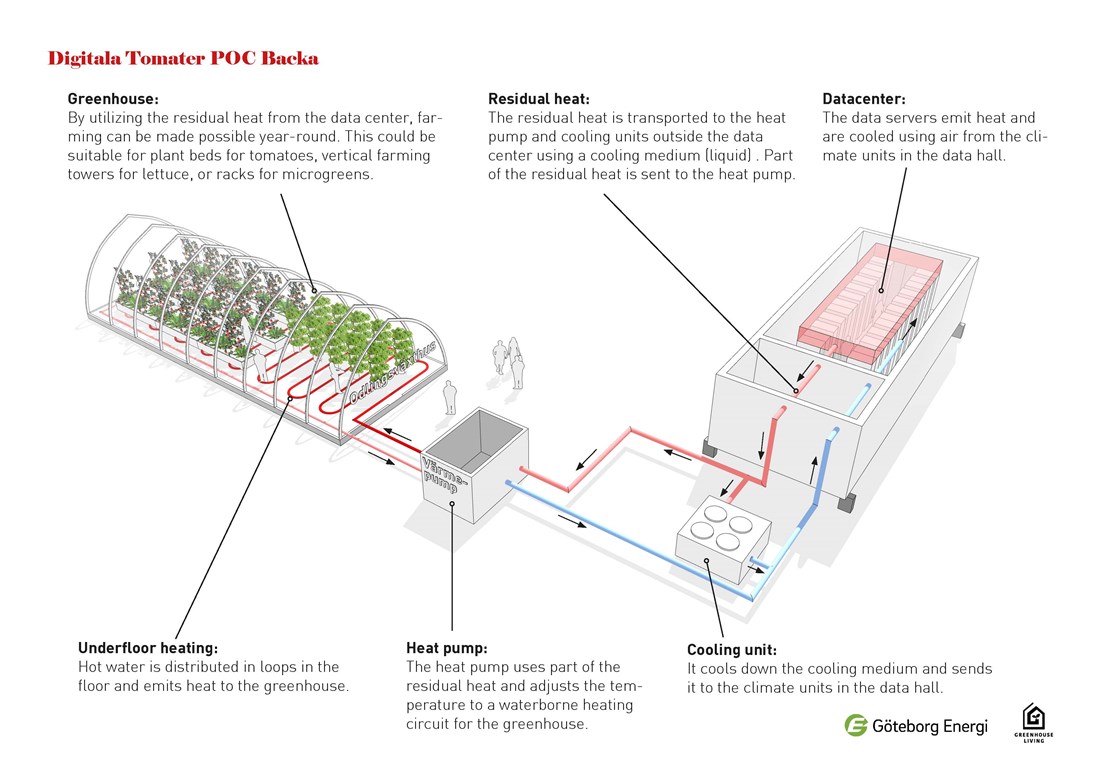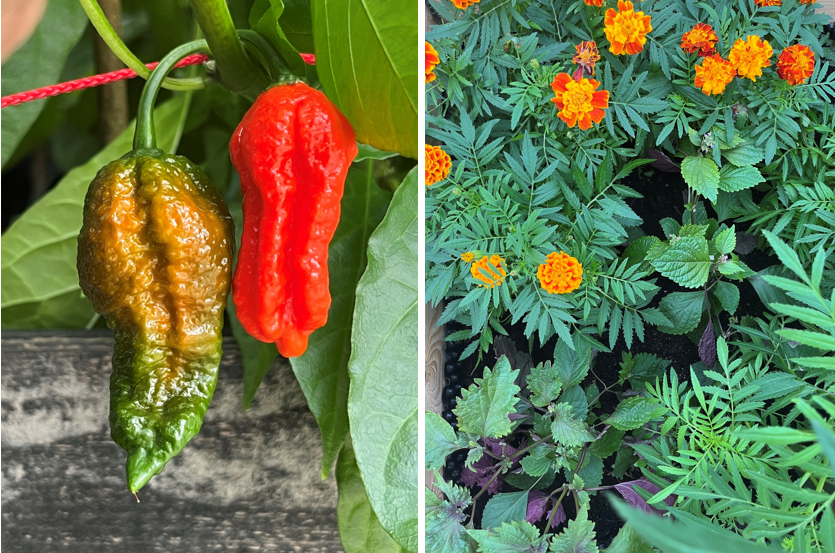Chili Peppers and Ginger Grown with Waste Heat Recovered from Data Centers
Publiced january 2025.
Do you remember the project called digital tomatoes? Do you wonder what happened? Well, the greenhouse is now built and uses residual heat from Göteborg Energi's data center. However, the tomatoes turned into chilli peppers, and this Winter's growing season is up and running.
In 2020, Göteborg Energi had just started a cooperation with the City of Gothenburg, Greenhouse Living and Kajodlingen to explore hor residual heat from subsidairy GothNet's data center could be recovered for urban farming.
- Data centers emit large amounts of residual heat is typically vented away without being recovered. The residual heat temperature is usually around 24 degrees Celsius, whitch is ideal for greenhouses. So, combining it with the need for heat within urban farming was a good match, says Magnus Hartmann, business developer at Göteborg Energi GothNet.
A growing market
A digitalization of our society continues to increase, with more and more functions being connected - from traffic control and domestic services, to energy management and snow removal. Following with the rapid development of AI, the need for data traffic is increasing even more.
- We see that this creates an increased demand for server capacity and data centers in cities because data processing often needs to perform close to the user. This creates good conditions for this kind of waste heat recovery for urban farming, says Magnus Hartmann.
The size of the greenhouse is 130 square meters and different methods are used, such as traditional cultivation in soil and vertical, hydroponic cultivation in multiple layers (managed by Mikrogården). The walls of the greenhouse consist of 32 mm insulated plastic panels that light in while still providing som insulation.

First Growing Season Complete
The greenhouse connected to the data center in Backa went operational during the summer growing season of 2024. The farming company Svala rents and manages the cultivation in the greenhouse.
– The greenhouse is well-suited for special orders, for example from restaurants or others who are after something specific. This past summer was Såseriet, a sause producer based in Gothenburg, in the look for a very special chili for thier sauses. Those were the chilli peppers we grew and harvested in the Fall.
- They grew like crazy! says Joel Albertsson at Svalan.
– But it was during the summer months. Now the real fun begins! It's now during the Winter season, tha the temperature from the data center really makes a difference, and we can maintain a stable temperature which promotes crop growth. We will continue with high-value crops, like highly valued shiso leaves or ginger, which is very expencive to grow otherwise because it demands a consistent temperature for several months. Heat is otherwise a huge cost for greenhouses during Winter, so this is a great solution, says Joel Albertsson.
Will there be any tomatoes then? Well, maybe not in this type of smaller greenhouse. Instead, Joel Albertsson, believes more in special crops and orders from restaurants or one like last summer's costumer - the sause producer. Other oders lined up include mint for Clarion Post Hotel, basil for a pizza restaurant, and shiso leaves for the restaurant Vrå. Tomatoes and staple crops will likely remain to be grown in the larger greenhouses outside of the city, he belives.

In Sync With The City's Mission
The City Counsil has already tasked municipal department to develope urban farming.
- This opportunity to take advantage od and recover the residual heat from Göteborg Energi's data center and thus enable year-round cultivation, fits very well with the city's mission says Martin Berg at the Urban Development Administration, who is responsible for this issue for the City of Gothenburg.
- If this turns out well, it could become a model for how to use recovered heat in urban farming. Additionally, in the city's new business plan, we've been given an expanded mandate do develop and expand the concept of urban farming, says Martin Berg.
- This has been a very exciting project since it's not something we do on a daily basis. The greenhouse is a so-called proof of concept. We aim to develop, learn and create somehing sustainable, says Magnus Hartmann.